Dr. Mustapha Abdullahi, Director-General/CEO of the Energy Commission of Nigeria, has announced the country’s ambitious plan to achieve a stable power supply by increasing its energy generation capacity. According to Abdullahi, Nigeria needs to generate 40,000 megawatts of electricity to meet the energy demands of its citizens and match the power stability seen in developed nations.
Currently, Nigeria has an installed capacity of 12,000 megawatts, but only 5,000 megawatts are distributed to the public. “We need 40,000 megawatts to be able to meet the country’s energy needs and enjoy stable power as obtained in other developed nations,” Abdullahi stated. He highlighted the critical need to expand energy generation infrastructure to close the significant gap between current supply and demand.
To address these challenges, the commission has developed a national energy master plan aimed at improving power availability across Nigeria. Abdullahi explained that the plan would ensure all Nigerians have access to reliable and consistent electricity. Part of the strategy involves the establishment of a plant dedicated to producing solar panels and batteries, providing Nigerians with access to affordable solar power solutions. “I am assuring Nigerians that we will achieve this by next year,” he affirmed.
In addition to expanding solar energy production, Abdullahi also revealed that the commission has commenced construction of a Renewable Energy College. This institution will offer free education on energy solutions, aiming to bridge the skills gap in the power sector and support the government’s efforts in energy development.
The Energy Commission’s initiatives reflect a comprehensive approach to tackling Nigeria’s power issues, combining infrastructure expansion with education and renewable energy solutions. The government’s commitment to increasing power generation is expected to bring Nigeria closer to achieving stable and sufficient electricity for its citizens.

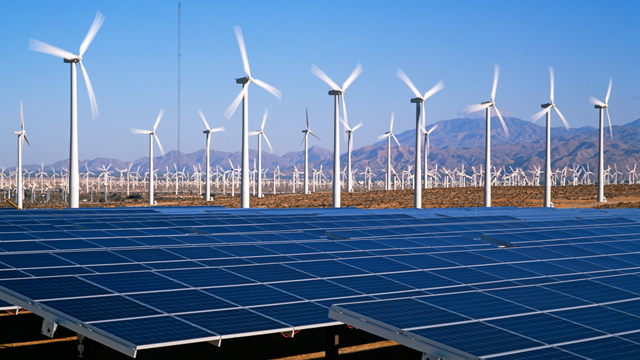



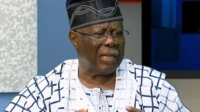
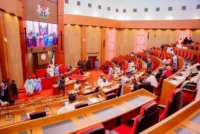

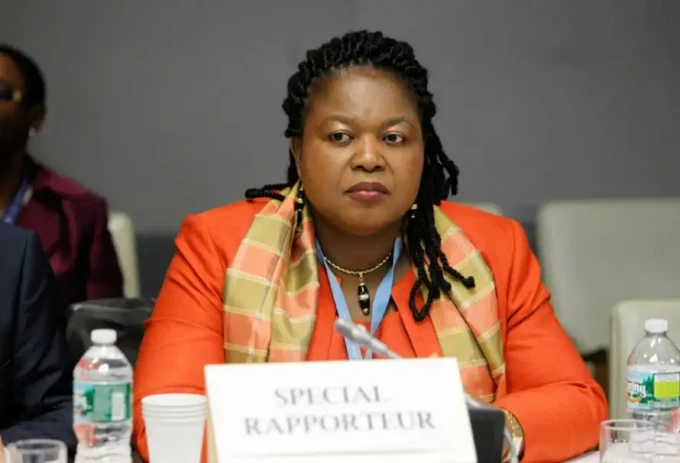
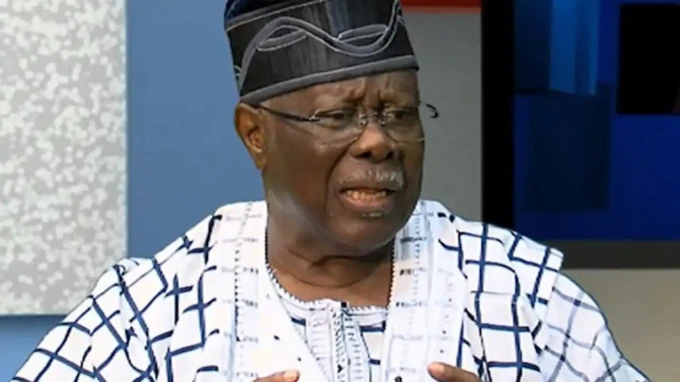

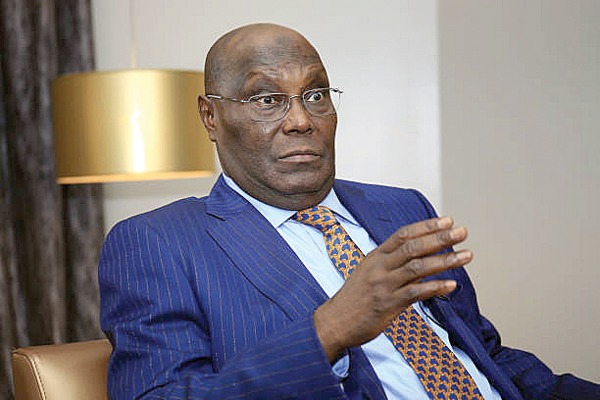
I dont buy it! Nigeria aiming for 40,000 megawatts sounds like a pipe dream. Lets see if they can deliver.
I dont buy it! Nigeria aiming for 40,000 Megawatts sounds like wishful thinking. Lets be realistic here. #SkepticalEmoji
I dont buy it. Nigeria aiming for 40,000 MW? Sounds like a pipe dream to me. Lets see some real progress first.
I dont buy it! Nigeria aiming for 40,000 MW of power sounds like a pipe dream. Lets see some real progress first.
I dont buy it! Nigeria aiming for 40,000 megawatts sounds like wishful thinking. Lets see some concrete plans first.
Have some faith, progress starts with ambition. Lets support positive change.
I dont buy it! Nigeria aiming for 40,000 megawatts of power? Sounds like wishful thinking to me. Lets see some action first.
I dont buy it! Nigeria aiming for 40,000 megawatts sounds like a pipe dream. Lets focus on achievable goals first.
Dream big or go home. Nigeria can achieve greatness with the right mindset.
I dont buy it! Nigeria aiming for 40,000 megawatts? Sounds like wishful thinking to me. Lets see some action first.
Actions speak louder than words. Lets wait and see if Nigeria can deliver.
I dont buy it! Nigeria aiming for 40,000 Megawatts sounds too good to be true. Lets see some real progress first.
Why aim for 40,000 megawatts when we could harness the power of renewable energy sources like solar and wind? Lets think outside the box!
I dont buy it! Nigeria aiming for 40,000 Megawatts sounds like wishful thinking. Lets see some real progress first.
I dont buy it! Nigeria aiming for 40,000 megawatts sounds like a pipe dream. Lets see some real action first.
I dont buy it! Nigeria aiming for 40,000 Megawatts? Its just a pipe dream, they cant even manage the current power supply.
Im skeptical about Nigeria reaching 40,000 megawatts. It sounds too ambitious considering the current state of the power sector.
Is it realistic to aim for 40,000 megawatts in Nigeria? Lets not overlook the challenges and feasibility of such a goal.
I dont trust the governments promises on power supply. Lets see the results first before celebrating. Actions speak louder than words.
Why focus on increasing power supply when there are still basic infrastructure issues in Nigeria? Priorities need to be reassessed.
I dont buy it! Nigeria aiming for 40,000 megawatts sounds like a tall tale. Lets see some real progress first.
Skeptical much? Lets give Nigeria a chance to prove you wrong. Patience is key.
I dont buy it! Nigeria aiming for 40,000 Megawatts? Sounds like wishful thinking. Lets see some real action first.
I dont buy it! Nigeria aiming for 40,000 Megawatts sounds like a pipe dream. Lets see some real action first.
Is it realistic for Nigeria to aim for 40,000 MW of power? Lets focus on fixing corruption first.
I dont buy it! Nigeria aiming for 40,000 Megawatts? Sounds like a pipe dream to me. Lets see some real progress first.
Dont doubt Nigerias potential. Progress takes time and determination. Lets support their goals.
Honestly, I highly doubt Nigeria can achieve that target. The energy sector there has always been plagued with inefficiencies.
Dont underestimate Nigerias potential for progress. Challenges exist, but change is possible.
I dont buy it! Nigeria aiming for 40,000 megawatts of power? Sounds like wishful thinking to me. Lets see some action first.
I highly doubt Nigeria can achieve 40,000 megawatts. The corruption in the energy sector is too deep-rooted. Lets be realistic.
I dont buy it! Nigeria aiming for 40,000 Megawatts? Sounds like a pipe dream to me. Lets see some real progress first.
I dont buy it! Nigeria aiming for 40,000 megawatts sounds like a pipe dream. Lets see some real progress first.
40,000 megawatts sounds ambitious, but can Nigeria really achieve it with all the current challenges? Im skeptical.
I dont buy it. Nigeria aiming for 40,000 megawatts? Sounds like a pipe dream to me. Lets be realistic here.
Dont underestimate Nigerias potential. Progress may surprise you. Stay open-minded.
Why not invest in renewable energy sources instead of focusing on increasing fossil fuel power generation? Its time to prioritize sustainability.
I dont buy it! Nigeria aiming for 40,000 megawatts sounds like a pipe dream. Lets see some real action first.
I dont buy it! Nigeria aiming for 40,000 Megawatts sounds like wishful thinking. Lets see some real progress first.
I dont buy it! Nigeria aiming for 40,000 Megawatts sounds ambitious. Lets see if they can really pull it off.
Im skeptical. Nigeria aiming for 40,000 MW sounds ambitious. Can they really pull it off? Lets wait and see.
Wow, aiming for 40,000 megawatts in Nigeria sounds ambitious! Hope they have a solid plan to make it happen. Lets see if they can pull it off.
Is it realistic for Nigeria to aim for 40,000 megawatts of power supply? Lets discuss the feasibility of this ambitious goal!
Im not buying it. Nigeria promising 40,000 megawatts sounds like a fantasy. Lets see some real progress first.
Can Nigeria really achieve 40,000 megawatts for stable power supply? Im skeptical, but hopeful! Lets see if they can pull it off.